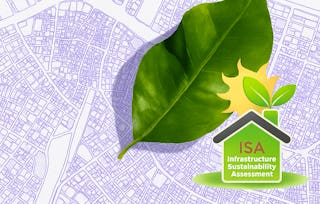Welcome!
Are you looking to learn more about how to conduct scientific research, specifically in an urban or local context? Then you have found the right course: Studying Cities: Social Science Methods for Urban Research by the Institute for Housing and Urban Development Studies (IHS), Erasmus University Rotterdam. During the course you will gain more insight in the different steps of the research cycle, and build a firm foundation for your own future research endeavors. Before any (urban) researcher may start conducting research, it is crucial to understand the different aspects and elements of doing research. The course will guide you through the various steps of the research cycle to provide you with the basic knowledge necessary for any Master-level program, but with a special focus on urban and local development. The course starts with introductory lectures on the problem statement, research objective, empirical cycle and the research question. Over the following weeks you will also learn the components and criteria of the theoretical framework and operationalization, research strategies, and the collection and analysis of quantitative and qualitative data. You will be provided with the necessary tools to understand and evaluate these key steps in scientific research by watching video lectures with in-video questions and by completing the final peer review, which will use all the elements you have learnt throughout the course.






















